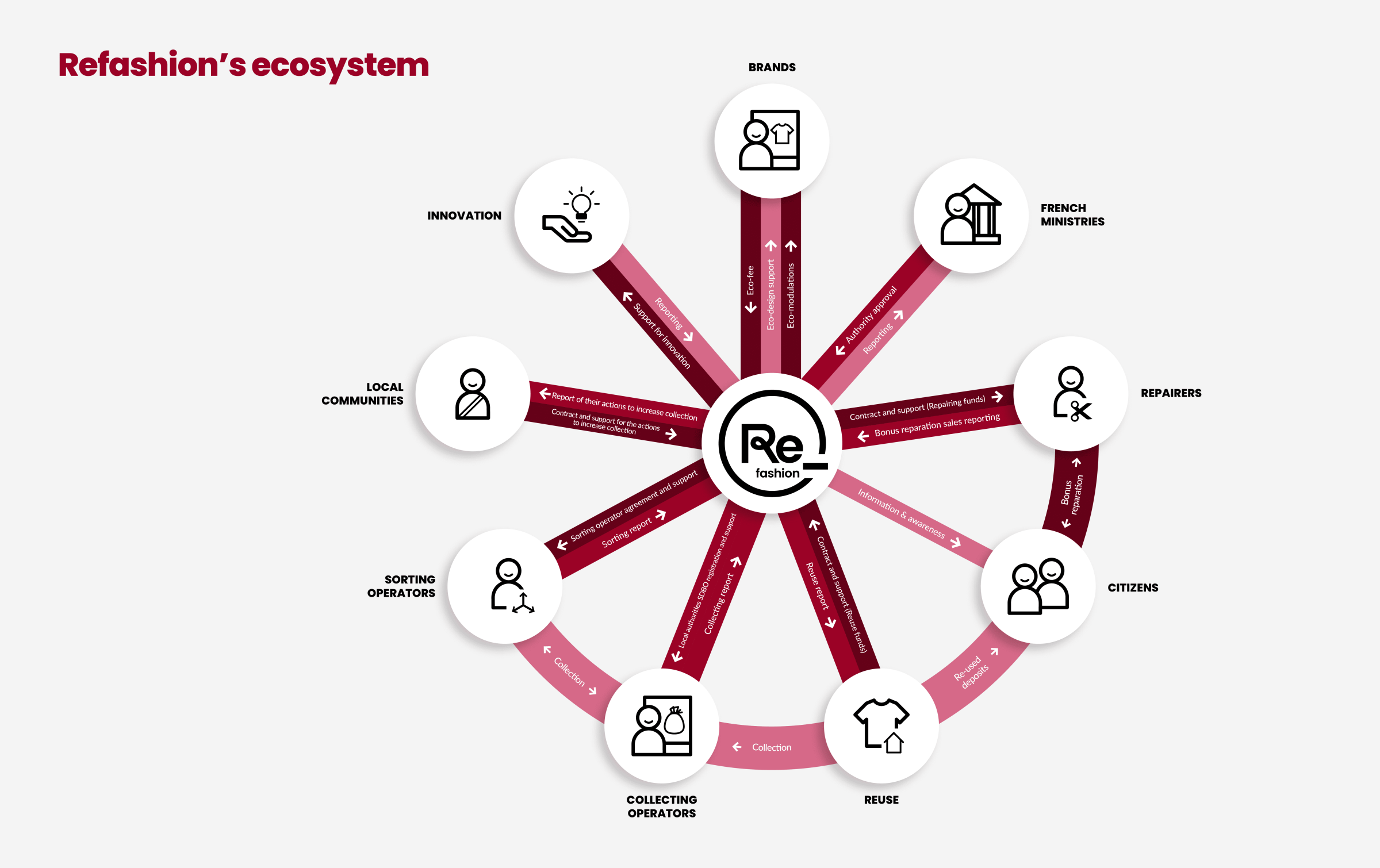Approved in 2008 by the public authorities, the eco-organization is the result of a
To unite and support all the players in the production, consumption and regeneration processes in order to reduce impacts and create value.
Our mission is ambitious because it involves all levels of the textile industry. We want to serve all the trades to have a concrete impact at all levels. It is with this mission in mind that we wish to introduce ourselves to the players in the sector in order to establish with them a dynamic partnership for progress and value creation.

Our objectives
To give everyone the keys to action to implement a 100% circular fashion

-
Reduce our environmental impact by implementing, alongside the other EPR channels, the ambitious policy of the Ministry of Ecological Transition within the framework of the Law on the fight against waste and the circular economy (AGEC law),
-
Raise citizens' awareness of the right sorting gestures,
-
Double the volume of TLC collected in the short term and increase the proportion of TLC recovered during collection,
-
Accompany our members on the path to eco-design by providing tools, services and information that facilitate and accelerate the transformation of the sector,
-
To support local authorities in their initiatives of Industrial Ecology of Territories (EIT) and awareness of the citizens,
-
Supporting the transition to a circular economy by financing innovative recycling projects,
-
To develop the recycling industry for used textiles that cannot be reused or recycled by supporting the downstream players in the sector.

